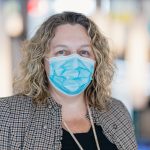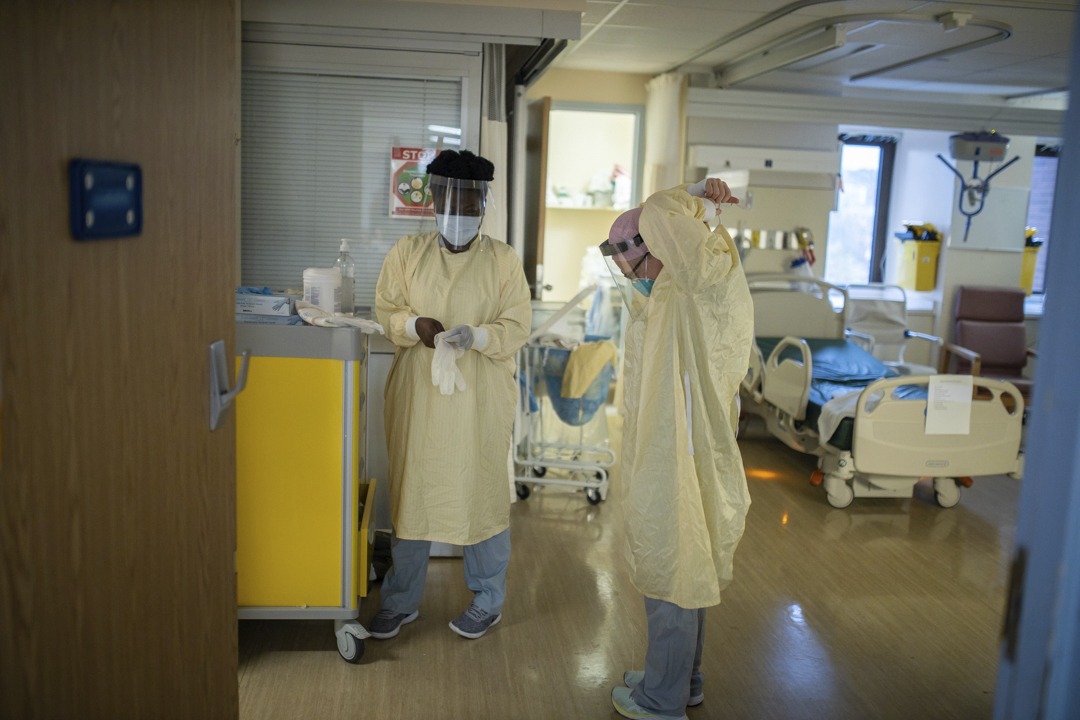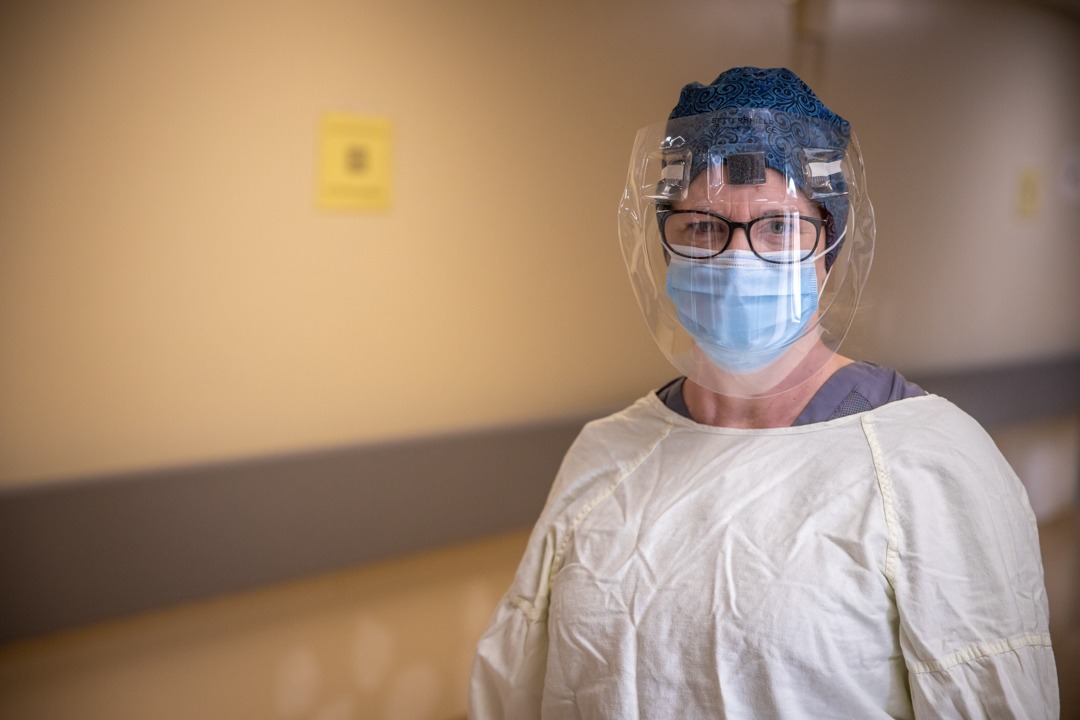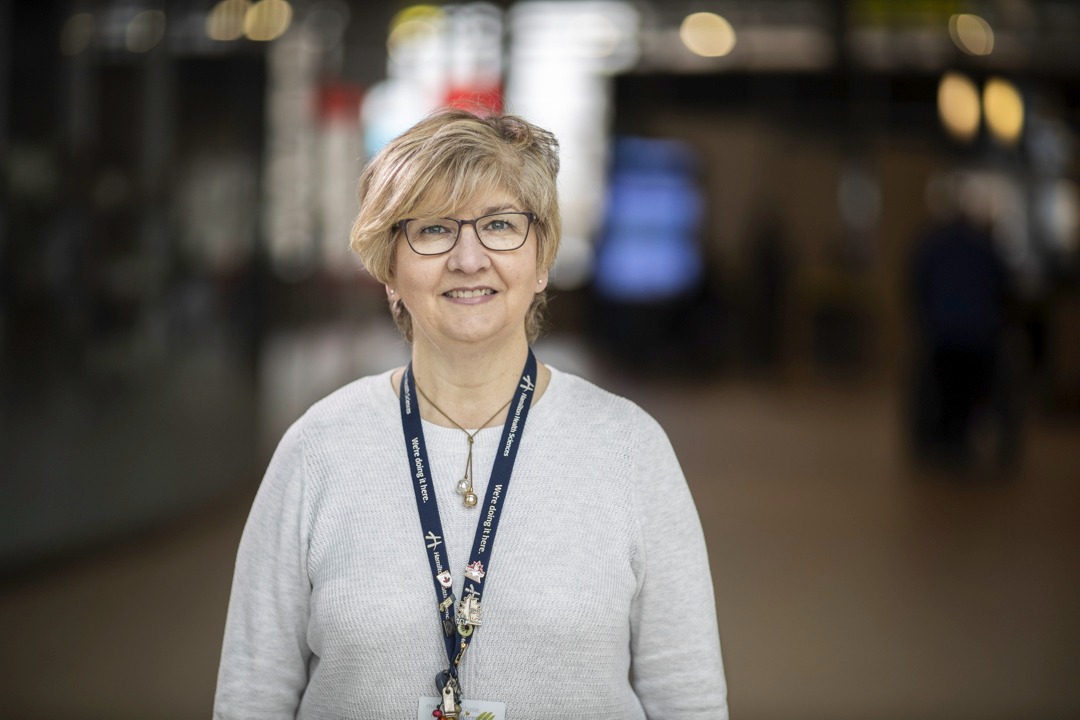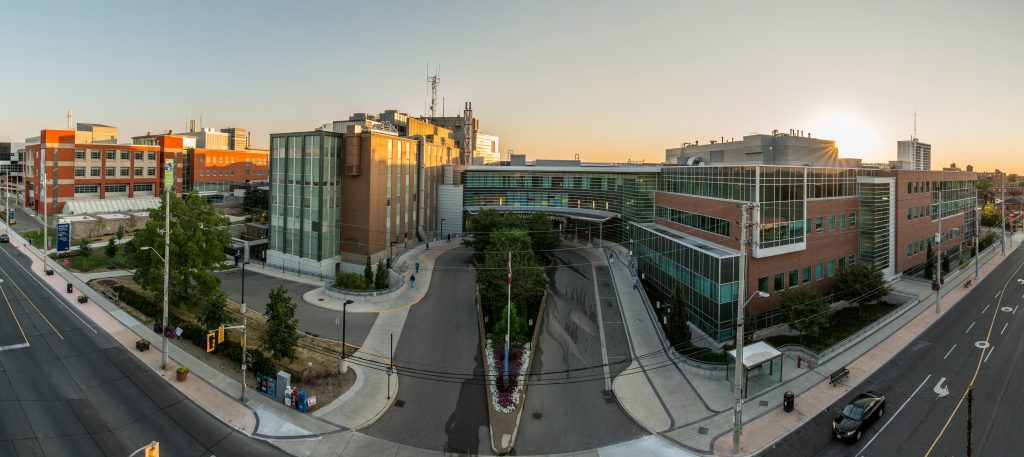
Juravinski Hospital navigates COVID response
The E3 Medicine Unit saw Juravinski Hospital’s (JH) first COVID outbreak of the pandemic’s second wave. The outbreak began in early December and was declared over January, allowing the unit to continue normal operations and accept new patients.
E3 manager Sue Anne McAlpine says the response to the outbreak was a group effort.
“Infection Prevention and Control (IPAC) really took the lead. They flagged cases, set timelines, reviewed patients most at risk and helped the teams take all the necessary precautions to make sure the environment was as safe as possible. They attended safety huddles to support staff, answer questions, provide guidance and ensure there was proper signage and personal protective equipment,” she says.
“Employee Health Services (EHS) has been a pivotal resource in decision making and ensuring the wellness of the teams. EHS arranged all the staff testing onsite, reported positive staff cases in a timely fashion and connected with staff to monitor their recovery and establish safe return to work dates.”
McAlpine also credits the social workers who navigated the challenges of visitor policies and the physicians who shared COVID test results with patients and staff, among many others who are integral in the outbreak response, such as the incredible front-line.
The E3 team had to redesign the way they functioned. “Everyone rolled up their sleeves to provide care for patients,” says McAlpine, noting the team broadened the responsibilities they would typically perform to provide all the necessities to their patients.
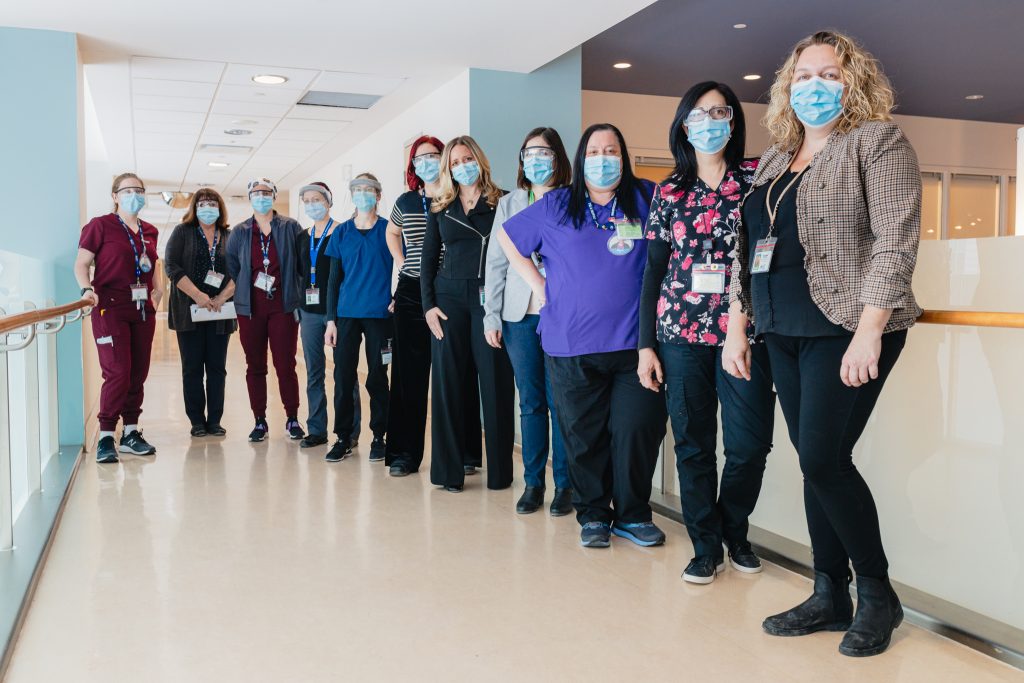
Sue-Anne McAlpine, Meghan Hutchinson, Lauren Brodnicki, Kelly Swan, Shivon Wade, Michelle Cassidy, Taryn Riley, Emily Westover, Diane Lioris, Kim Carr, Pat Perry
JH created a designated COVID unit
Due to ongoing outbreaks on different units, COVID care was provided at JH over several weeks before the hospital created a designated unit for patients who acquired COVID-19 while in the hospital. This way, they didn’t have to transfer patients to the designated COVID hospital, Hamilton General Hospital. The JH COVID unit was meant to alleviate the additional work necessary to plan and coordinate transfers, as well as provide a specialized team to care for COVID patients. As COVID-positive patients were identified in the hospital, they were moved to this designated unit at JH.
JH becomes regional COVID hospital
Shortly after the hospital created a designated COVID unit, it was also added to the list of regional hospitals receiving COVID-positive patients who come through the emergency department and those who require critical care.
As the number of individuals with COVID-19 requiring hospitalization was increasing across Hamilton Health Sciences, regionally and provincially, HGH was caring for record-breaking numbers of patients in the designated COVID ward and intensive care unit.
Teams at JH put in place the necessary measures to ensure the ongoing safety of all other patients and specifically those with a cancer diagnosis at the hospital.
Resiliency is key
As the pandemic’s second wave persists, facilities such as hospitals and long-term care homes continue to see COVID-19 outbreaks despite the best efforts of the teams who continue to fight the transmission of the virus in our community.
HHS facilities are no exception. Outbreaks have occurred at Juravinski Hospital (JH), Hamilton General Hospital (HGH), St. Peter’s Hospital, and the Satellite Health Facility.
As staff contracted the virus, resiliency became more important than ever. At the outset, many units managing COVID outbreaks were not trained to be COVID units. Caring for COVID positive patients was new to the team and it came with some anxiety.
“We had a ton of support from the resiliency team at HHS who joined us for a huddle twice a day. The first huddle was to set the tone for the day, set priorities, and discuss sick patients, safety concerns, and discharges,” says McAlpine. “We encouraged staff to ask as many questions as they had and reported back with the answers at the afternoon huddle. We allowed as much time as staff needed to talk about how they were feeling.”
They would also practice mindfulness exercises such as stretches and relaxation techniques. Each huddle was closed with a reflection.
“We thank all teams for their expertise in bringing the outbreaks under control and for caring for patients with COVID-19,” says McAlpine.

